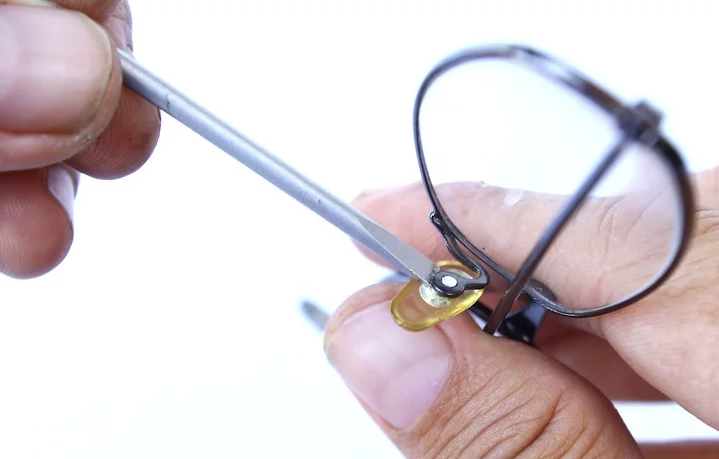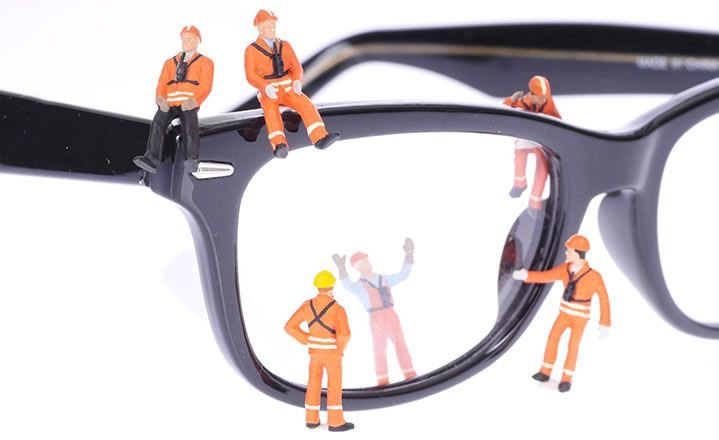Many people now wear glasses as a regular part of their daily lives. They eventually wear out, break, or just stop meeting your demands. Thus, it is important to know when and how to change them. So that you can prevent living an uncomfortable and unhealthy life due to eye disorders.
Signs That You Should Replace Glasses
These are some signs that it’s time to replace glasses.
- Scratches on the Lenses
Scratching of the lenses is the first indication that they are over their expiration date. You will begin to notice distortion in your perspective if your glasses’ lenses start to form thin lines. Even minor scratches will make your view less clear. You may need to buy new glasses if you notice scratches or marks that cannot be removed.
- Altered Visual Acuity
When your vision becomes less clear, that may mean you need a replacement lens for your glasses. Sometimes, that is the natural progress of eyesight or simply the natural change in prescription. More than usual squinting to try and see may be a signal for changing lenses in glasses.
- Frequent Headaches
Other signs to change glasses for prescription are frequent headaches. Eye strain from improperly prescribed lenses might result in headaches. It could be time for replacement lenses or frames if there is any discomfort when wearing your glasses. For confirmation of the correct prescription, one may always consult an optometrist.
- Broken or Shattered Frames
Your frames for glasses may wear out with time. When your frames are broken or damaged, then you need to switching glasses. A bent frame is irritable when one wears glasses and it alters the positioning of the glasses. If you find that your glasses are no longer providing you with the support that you require then you should try and get new ones.
- Irritation or Poor Fit
With time, your glasses that change may not fit you perfectly. If your eyeglasses fall off your nose or pinch the sides of your temple, they are either misaligned or have worn down over time. A bad fit is frankly rather uncomfortable and can blur your vision. If that is so then, you might need to change them altogether.
- Changing Fashion
Sometimes, it is not even about vision. You change trends, and there you are with new frames. Maybe your old frames are old news, or maybe you just want something new and fun. Whatever bold or simple it is, there is always something great in getting a new pair.
- Age of Your Glasses
Even glass has an expiration date. Be as careful as you like about your eyewear, and lenses degrade over time. UV coatings wear off with time, and the frame material starts breaking down. After 2 to 3 years, older glasses should be replaced if they don’t work.
- Countering Alterations in the Eyeball
If your eyesight suddenly changes and you need reading glasses, it may be time to update your glasses. Most people notice that with age, they have to get new prescriptions for certain activities. It may even mean replace glasses for various things, like reading, driving, or working on the computer.
How to Replace Nose Pads on Glasses

Nose pads are the smallest parts of your glasses but are very important. Nose pads will eventually wear out and become unpleasant, causing spectacles to slide down your nose. So, when this happens you can replace nose pads on glasses as follows:
#1: Pads Replaces
Replacement nose pads are typically available at any eyeglasses retailer. Another option is to go online for the appropriate size and shape of nose pads for your spectacles.
#2: Changing old nose pads
Remove the old pads by unscrewing them off with a small screwdriver or tool. Old pads usually stick between a small screw.
#3: Install New Nose Pads
Once old pads are removed, insert a new one, screw them in with extra care so they will not be loose.
#4: Adjust for Comfort
After replacing the nose pads, adjust them so that your glasses fit comfortably. Make sure they don’t slide down and are positioned evenly on your nose.
If you do not like to replace nose pads on glasses yourself, you can always visit an optician for assistance.
Cost of Replacing Lenses in Eyeglasses

There are several reasons to have the glasses lenses replaced. For example, you may need to renew your prescription, change your lens type, or replace scratched or damaged lenses. The amount that you will pay to replace glasses lenses depends on these:
#1: Lens Types
The prices differ based on the selection of lenses. Single-vision lenses are relatively cheaper, and progressive lenses or bifocal lenses are more expensive.
#2: Lens Material
Frame options for glasses may include a plastic, polycarbonate, or high-index lens. Polycarbonate lenses are more resistant, and slightly more expensive compared to normal plastic lenses.
#3: Lens Coatings
Other coatings like anti-reflective coating, UV protection, or blue light blocking can add to the price.
#4: Frame Selection
If you’re keeping your current frames, the cost will only include the lenses. But if you also need the replace glasses frames, their replacement will also be charged at an extra cost.
The replacement lenses for eyeglasses range from $100 and $500 for different lenses, coatings and materials.
Tips on Replacing Glasses
#1: Regular Eye Exams
These tests also renew your prescription. You will then be able to choose when to replace the glasses, ensuring that you can always see properly.
#2: Know Your Options
Check out various frame styles and lens options before you replace frames for glasses. There are plenty of options, whether you’re just replacing nose pads on glasses or completely changing the glasses frames.
#3: Reliability
If the glasses are new, consider durable material. If you habitually drop or scratch them so often, you may demand stronger lenses and frames for your glasses.
#4: Shop Online or In-Store
You can either shop for your new glasses online or visit an eyewear store. Online stores may offer lower prices, but in-store fittings ensure that your glasses fit correctly.
Final Remarks
It’s important to know if and when one needs to change eyeglasses for unimpaired vision and comfort. Perhaps you need to get your lenses or frames replaced; definitely, if your prescription has been renewed. Keeping a check on discomfort, cracking or damage. Your changing eyesight will provide clues. Consult an optometrist if you need more precise eyeglasses to live and enjoy life to the maximum extent.



